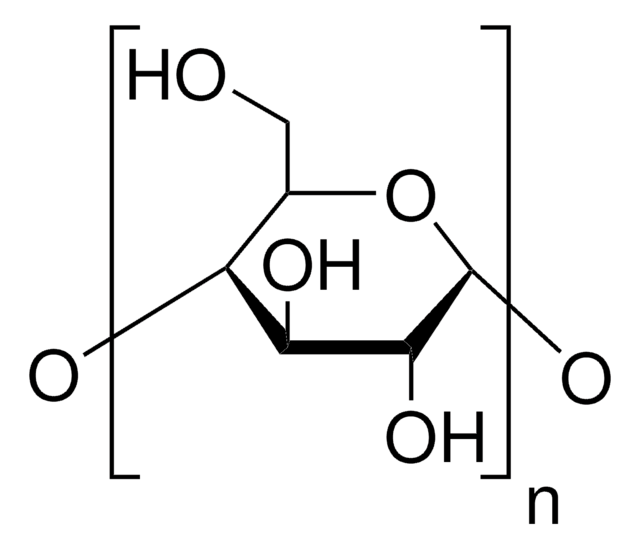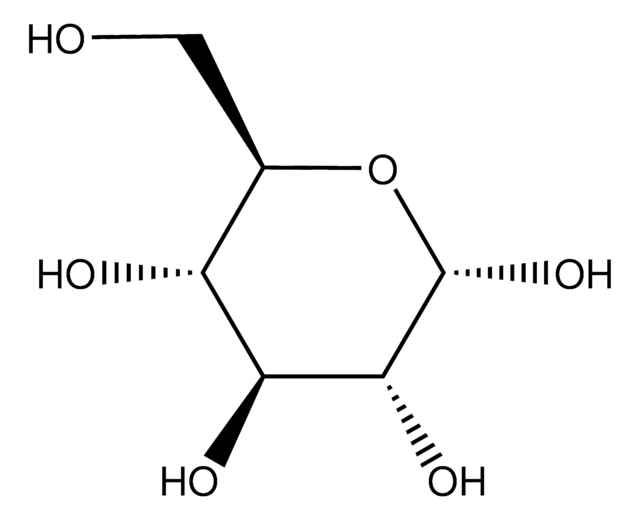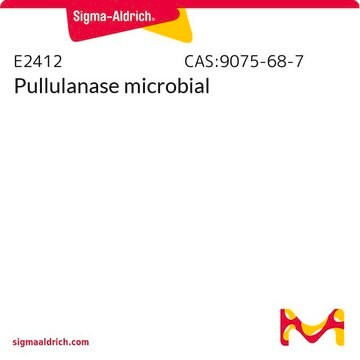Recommended Products
biological source
potato
Quality Level
form
powder
impurities
<25% water (Karl Fischer)
solubility
water: 7.69 mg/mL, clear to hazy, colorless to faintly yellow
storage temp.
room temp
SMILES string
O1[C@@H]([C@@H]([C@H]([C@@H]([C@H]1CO[C@H]4O[C@@H]([C@H]([C@@H]([C@H]4O)O)O[C@H]5O[C@@H]([C@H]([C@@H]([C@H]5O)O)O)CO)CO)O[C@H]3O[C@@H]([C@H]([C@@H]([C@H]3O)O)O)CO)O)O)O[C@@H]2[C@H](O[C@@H]([C@@H]([C@H]2O)O)O)CO
InChI
1S/C30H52O26/c31-1-6-11(35)13(37)19(43)28(50-6)55-24-9(4-34)52-27(21(45)16(24)40)48-5-10-25(56-29-20(44)14(38)12(36)7(2-32)51-29)17(41)22(46)30(53-10)54-23-8(3-33)49-26(47)18(42)15(23)39/h6-47H,1-5H2/t6-,7-,8-,9-,10-,11-,12-,13+,14+,15-,16-,17-,18-,19-,20-,21-,22-,23-,24-,25-,26+,27+,28-,29-,30-/m1/s1
InChI key
WMGFVAGNIYUEEP-WUYNJSITSA-N
Looking for similar products? Visit Product Comparison Guide
Application
Other Notes
Storage Class
11 - Combustible Solids
wgk_germany
WGK 3
flash_point_f
Not applicable
flash_point_c
Not applicable
ppe
Eyeshields, Gloves, type N95 (US)
Choose from one of the most recent versions:
Certificates of Analysis (COA)
Don't see the Right Version?
If you require a particular version, you can look up a specific certificate by the Lot or Batch number.
Already Own This Product?
Find documentation for the products that you have recently purchased in the Document Library.
Customers Also Viewed
Our team of scientists has experience in all areas of research including Life Science, Material Science, Chemical Synthesis, Chromatography, Analytical and many others.
Contact Technical Service






